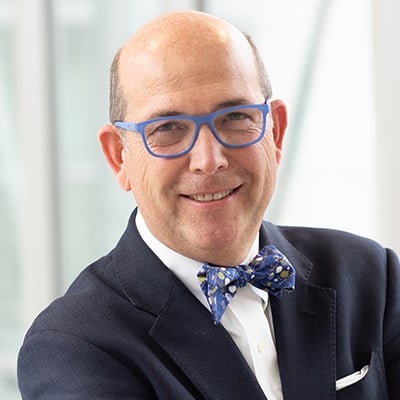

“We are working on getting the financial services industry to be a catalyst for change on how we think about longevity,” said Joseph F. Coughlin, founder and director of the MIT AgeLab, which researches trends related to aging and helps organizations develop innovations in what he has dubbed the “longevity economy.”
Mr. Coughlin’s involvement with the financial services industry came about when he realized that it could serve as the lynchpin in changing societal attitudes to aging.
“There’s been a fundamental flaw in how we approach planning,” he said. “Retirement planning should be more about navigating longevity, beyond money.”
The difficulty people have in planning or saving enough for retirement is not because they lack financial literacy or need to buy the latest TV, but because it is very difficult for them to visualize their future selves, he said; they are saving for the most ambiguous thing they will ever buy.
Accordingly, advisers need to change the focus of conversations from purely financial to helping clients manage the ambiguity, big decisions, complexity and end-of-life issues of life planning.
“You never associate creativity, design or stories with financial services,” Mr. Coughlin said. “The industry does a good job talking about complexity and quantitative matters, but when we talk to people about retirement, we need to change the narrative to appeal to their heads and hearts, and help them design their own later lives.”
Society also needs to write a new story about retirement, he said — one that does not view aging with negativity and dread, nor see older people as having less value.
In fact, people over 50 are a tremendous economic force, controlling 83% of U.S. household wealth, Mr. Coughlin said.
“It’s tragic for us to throw away the knowledge, creativity and experience older people offer,” he said. “They’re the largest emerging market hiding in plain sight.”

The Merrill Lynch defectors expand RBC's reach in Texas while LPL bolsters its New York presence.

Separately, Cleveland Fed President Beth Hammack said the central bank could make a move by June if data show a clear economic trajectory.

After onboarding 26 new advisors in the first three months of 2025, the independent wealth platform is looking forward to continued momentum in Q2.

The SEC hailed the verdict against the investment advisor, who the agency said breached his fiduciary duty to retired and pre-retiree clients.

As Robinhood bets on prediction markets, advisors are skeptical of the app's push into the RIA custody and wealth management services.
RIAs face rising regulatory pressure in 2025. Forward-looking firms are responding with embedded technology, not more paperwork.
As inheritances are set to reshape client portfolios and next-gen heirs demand digital-first experiences, firms are retooling their wealth tech stacks and succession models in real time.
